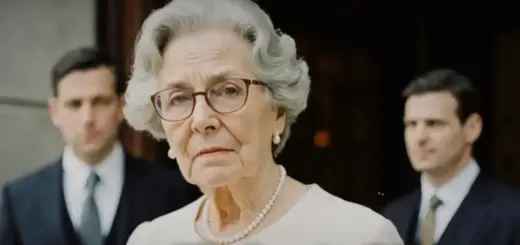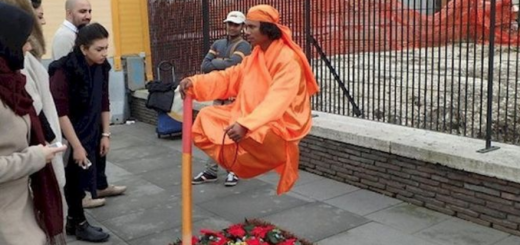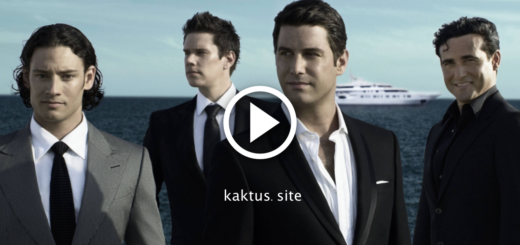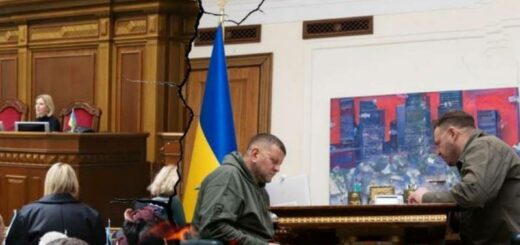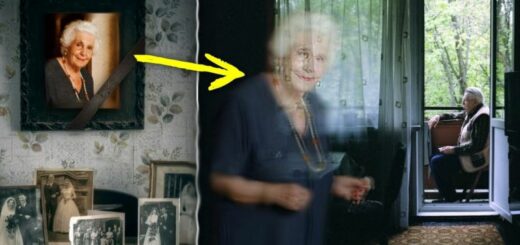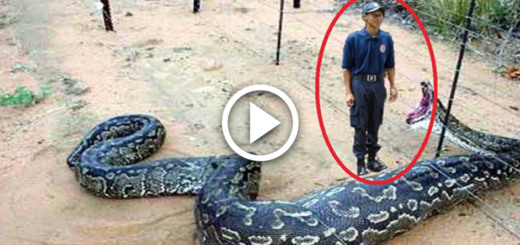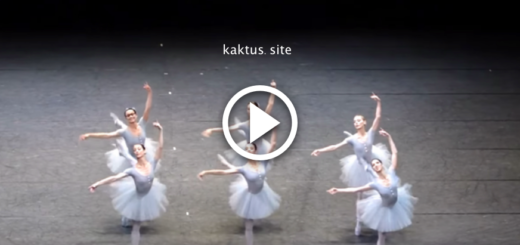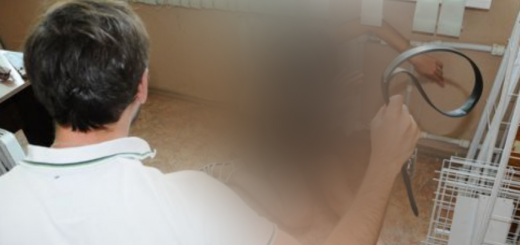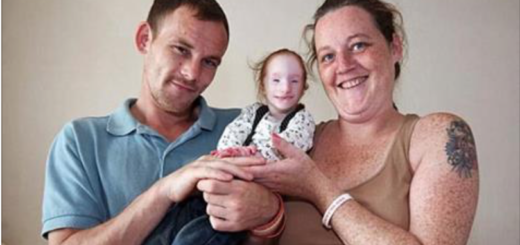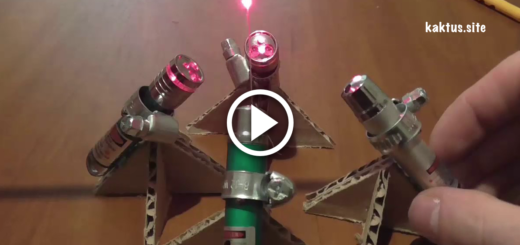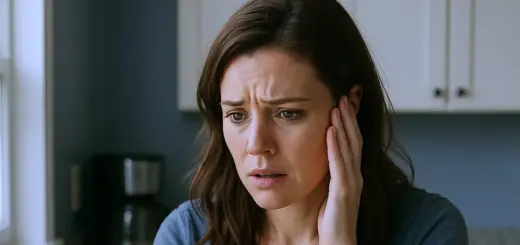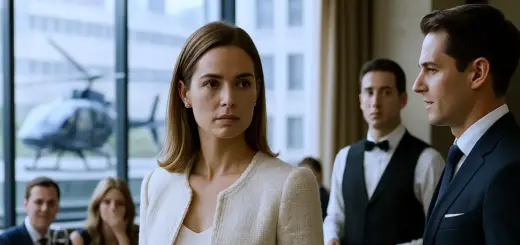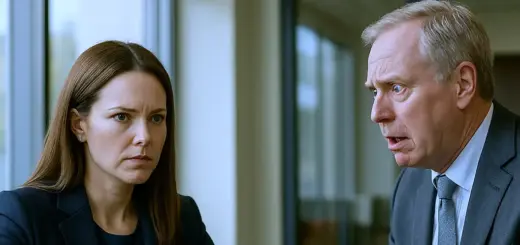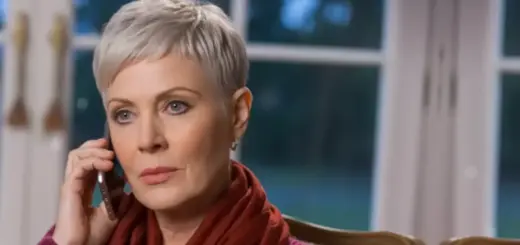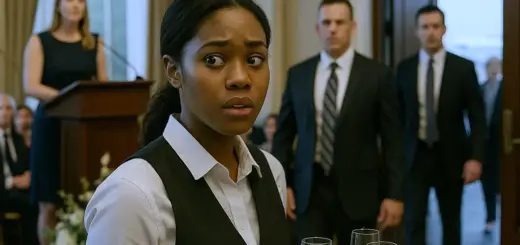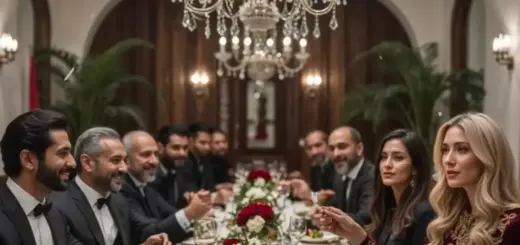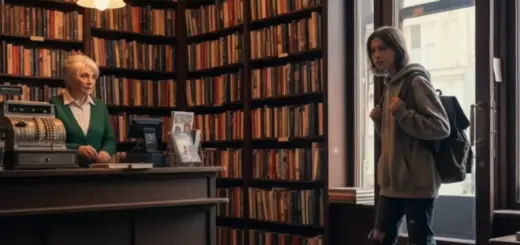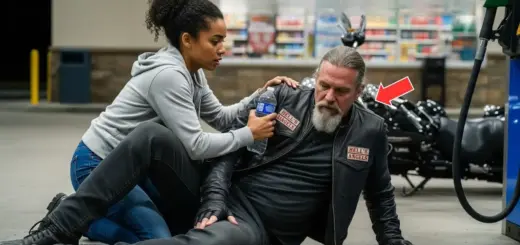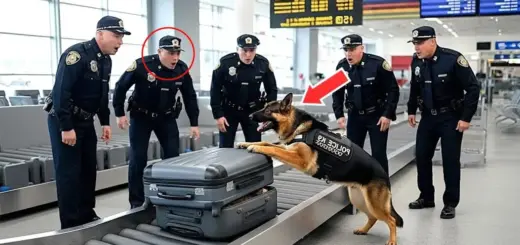Six months after the divorce was finalized, I received an unexpected email from Brittany. She had returned to Boston as planned and had enrolled in design school. Attached to her message was a photo of her first completed project, a sleek, modern dress that showed genuine talent.
Thank you for the encouragement, she wrote. Sometimes we need to be reminded of our own potential. I smiled as I typed my reply, genuinely happy for her new beginning.
In a strange way, Richard’s betrayal had liberated both of us, her from a relationship built on lies, and me from a marriage that had slowly but surely been diminishing who I was. That same week, I finalized the purchase of my own home, not a penthouse in Richard’s preferred neighborhood, but a brownstone in the West Village with character, history, and room to grow. As I arranged my belongings in the new space, I came across the photo that had once sat on my office desk, Richard and me on our tenth anniversary trip.
I considered it for a moment, then placed it in a box destined for storage, not thrown away, but no longer needed in my daily life. In its place, I set a new frame, a simple black-and-white photo of the Manhattan skyline at dawn, taken from the rowing club on a morning when I had risen early to watch the sun illuminate the city. It represented everything my life had become, independent, beautiful in its own right, full of possibility.
One year to the day after Richard’s devastating phone call, I attended the opening of the newest restaurant in the group, the first location I had helped develop from concept to completion. The space was stunning, with warm lighting, sustainable materials, and an innovative menu featuring local producers. Though Richard and I had worked on the project together professionally, we had maintained a careful distance personally, communicating primarily through management teams and legal channels.
At the opening event, we found ourselves momentarily alone near the bar, away from the crowd of investors, critics, and industry insiders. Richard looked good. He had always known how to present himself, but there was a new weariness in his eyes when he looked at me.
Congratulations, he said, raising his glass slightly. The critics are already raving. Your farm-to-table concept was exactly right.
Our concept, I corrected, giving credit where it was due. Your culinary vision, my sustainability framework, we still make a good team professionally. He nodded, a flicker of something like wistfulness crossing his face.
Better business partners than spouses, apparently. Perhaps, I agreed, then added more gently, or perhaps just the wrong timing, the wrong circumstances. Do you ever wonder what would have happened if we’d met now instead of when you were 20? He asked suddenly.
If we’d been equals from the start? The question caught me off guard with its unexpected vulnerability. I considered it honestly before answering. I think we might have had a chance, but we can’t rewrite history, Richard.
No, he agreed, his gaze moving over the crowded restaurant, our shared professional achievement, if not our shared life, but we can learn from it, at least. As he moved away to greet an arriving food critic, I found myself reflecting on the journey of the past year. The pain had been real, the betrayal devastating, but from those ashes had risen something unexpected, a stronger, more authentic version of myself, a woman who knew her worth and wasn’t afraid to claim it.
The young receptionist who had been dazzled by Richard’s charm had grown into a formidable attorney who could stand her ground. The wife who had gradually lost herself in her husband’s shadow had reclaimed her independent identity. The woman who had once defined herself primarily through her marriage now stood complete on her own.
Later that evening, as I prepared to leave the successful opening event, my assistant Sarah approached with a knowing smile. There’s a rather handsome investment banker at Table 9 who’s been asking about you all evening. Thomas knows him from Harvard Law, says he’s one of the good ones.
I laughed, shaking my head. Not tonight, Sarah. Tonight is about celebrating this achievement.
I gestured around the thriving restaurant. But maybe next time. I think I might finally be ready.
And as I stepped out into the cool evening air, I realized it was true. The divorce that had once seemed like an ending had become instead a beginning, the start of a new chapter I was finally ready to write on my own terms, with my own voice. The pain of betrayal would always be part of my story, but it no longer defined me.
What defined me now was the strength I had found in its aftermath, the resilience that had transformed a devastating phone call into the catalyst for a more authentic life. Richard’s attempt to discard me had ultimately set me free, a justice more poetic than any legal settlement could provide. The success of the new restaurant marked a turning point in my relationship with Richard, a shift from adversaries in a bitter divorce to cautious business partners with a complex history.
Over the next six months, we settled into a professional rhythm that allowed the restaurant group to not only survive our personal upheaval, but actually thrive beyond expectations. Industry analysts who had predicted our divorce would devastate the business were proven wrong as our complementary skills, Richard’s culinary vision and operational expertise, paired with my legal acumen and sustainability initiatives, created a more robust organization than either of us could have built alone. The irony wasn’t lost on me.
The very claws meant to punish infidelity had inadvertently created a business partnership that was proving remarkably successful. The Montgomery Restaurant Group stock has climbed 15% since the restructuring. Thomas remarked one afternoon, dropping the Wall Street Journal on my desk as he entered my office.
Apparently, divorce agrees with your business sense. I smiled, skimming the article that highlighted our expanding farm-to-table concept and the group’s recent sustainability award. Who would have thought forced partnership would work out so well? Thomas settled into the chair across from my desk, studying me with the perceptive gaze that had made him such a formidable attorney.
And personally, how are you doing with all of this? It can’t be easy working alongside him. I considered the question carefully. It’s educational, I finally said.
Seeing Richard in a purely professional context has been revealing. He’s brilliant at what he does. I always knew that.
But I’m also seeing the limitations I was blind to during our marriage. Limitations? Thomas raised an eyebrow. His resistance to innovation, unless it’s his idea, his tendency to charm, rather than collaborate when faced with opposition.
I shrugged. Things I used to compensate for automatically as his wife, but now address directly as his business partner. And he’s accepting that direct approach? He doesn’t have much choice, I said with a small smile.
The board supports my initiatives, especially after the success of the Brooklyn location. Thomas chuckled. Alexandra Montgomery.
Corporate powerhouse. A far cry from the nervous first-year associate I hired eight years ago. I was never nervous, I protested.
You were terrified, he corrected good-naturedly. But determined. That’s why I took a chance on you.
He stood, straightening his jacket. Speaking of taking chances, the firm’s anniversary gala is next Friday. You should bring someone.
I gave him a pointed look. Subtle matchmaking doesn’t suit you, Thomas. Who said anything about matchmaking? I’m simply suggesting you might enjoy having company, besides a table of boring old attorneys.
He paused at the door. Although James Harrington did specifically ask if you would be attending. The antitrust specialist from Harrison and Wade? I tried to sound casual, though the name had caught my attention.
I’d met James at a legal conference three months earlier, and had been impressed by his insightful questions during my panel on contract negotiation. We’d spoken briefly at the reception afterward, a conversation that had left me intrigued, but cautious. The very same.
Brilliant lawyer. Divorced four years. No children.
Marathon runner. And rumor has it he does pro bono work for environmental causes. Thomas’ expression was innocent, but his eyes twinkled.
Not that I’m suggesting anything. After he left, I found myself considering the possibility. In the 15 months since my divorce, I had deliberately avoided dating, focusing instead on rebuilding my life independently.
There had been a few casual dinners with men Thomas or other friends had introduced me to, but I’d kept everyone at a careful distance, not yet ready to risk emotional involvement. But lately, I’d begun to feel something shifting inside me. A readiness to at least consider opening that door again.
Not to replace what I had lost, but to discover what new connections might be possible now that I knew myself more fully. I picked up my phone and scrolled to James’ contact information, saved after we’d exchanged business cards at the conference. Before I could overthink it, I typed a simple message.
I hear you’ll be at the Jenkins and Montgomery anniversary gala next Friday. Perhaps we could continue our discussion on antitrust implications in sustainable business practices. His response came less than five minutes later.
I’d be delighted. I’ve been following your work with the Restaurant Group’s supplier network. Impressive model for the industry.
Save me a dance? I found myself smiling at the subtle blend of professional respect and personal interest. One dance, I texted back. And only if you’re prepared to debate the merits of vertical integration while doing so.
Challenge accepted, came his swift reply. That evening, as I prepared dinner in my brownstone kitchen, a space I had redesigned to suit my own tastes, with high-end appliances and a herb garden in the window, I realized I was humming. The simple act of making plans that were solely for my own enjoyment felt like another small victory in my journey toward rebuilding.
My phone rang, interrupting my thoughts. Richard’s name flashed on the screen, unusual for a Friday evening when our interactions were typically limited to scheduled meetings and necessary e-mails. Richard, I answered, keeping my tone neutral.
Is everything all right? Alexandra? His voice sounded strained. I apologize for calling outside business hours, but we have a situation with the Chicago location. The head chef is threatening to leave, taking his team with him.
I set down the knife I’d been using to chop vegetables, giving him my full attention. Marcus? Why? He seemed completely on board with the expansion plans at the last meeting. He was, until he received a very generous offer from Ellington Group.
Richard named our largest competitor, a restaurant conglomerate known for aggressive tactics. They’re opening a new concept three blocks from our location and want Marcus to head it. That’s not a coincidence, I said, my legal mind already analyzing the implications.
How did they know about our Chicago plans in such detail? We haven’t even announced the specific menu concept publicly. Exactly my concern, Richard replied. I think we have a leak, possibly at the board level.
The seriousness of the situation was clear. The Chicago expansion was the centerpiece of our growth strategy for the coming year, with millions already invested in the location and concept development. Losing Marcus, with his Michelin star reputation and loyal team, would be a significant blow.
I need to fly to Chicago tomorrow, Richard continued. Try to convince Marcus to stay, but I could use your help with this. My help? I repeated, surprised by the request.
While we’d established a functional working relationship, Richard rarely sought my direct involvement in operational issues. You have a way with contracts, he said, a hint of his old charm creeping into his voice. And you understand the legal implications if Ellington is using insider information.
Plus, Marcus respects you. He was impressed with your commitment to sustainable sourcing. I hesitated, mentally reviewing my weekend plans, primarily catching up on case files and meeting a friend for brunch on Sunday.
Nothing that couldn’t be rescheduled. I’ll come, I decided. Text me the flight details.
I’ll review Marcus’s contract tonight and see what leverage we have. Thank you, Richard said, the relief in his voice, palpable. I’ve already asked Diane to book you on the same flight, 9 a.m. from LaGuardia.
After we hung up, I stood motionless in my kitchen for a moment, processing the unexpected turn of events, a business trip with Richard, our first since the divorce. The prospect was both professionally necessary and personally complicated. The next morning found us sitting side by side in first class, reviewing strategy as the plane prepared for takeoff.
Richard was impeccably dressed, as always, but I noticed the subtle signs of stress, the slight tension around his eyes, the way he repeatedly checked his watch. Marcus has another year on his contract, I noted, scanning the document on my tablet. But these non-compete clauses aren’t as robust as they should be.


